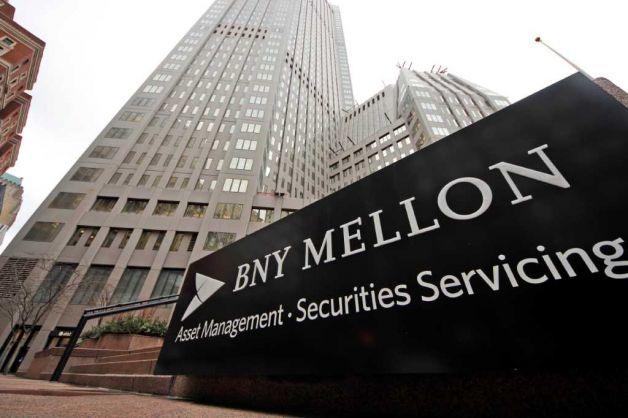Labor & Economy
Study: Wall Street Banks Overcharge L.A.

You know the old joke. It gets tailored for whatever the despised group of the moment is:
Q: What do you call 10,000 [lawyers/politicians/whatever] at the bottom of the ocean?
A: A good start.
I was thinking about that recently with regard to Wall Street and bankers. The popular (and populist) rage that has been rising against Wall Street seems to be reaching new levels. According to Gallup, Americans rank the “honesty and ethical standards” of bankers as “low” or “very low” at a rate about three times higher than we did in the mid-1980s. (The vast majority of that increase came after the most recent financial meltdown.) And politicians – even Republicans – now regularly use Wall Street as an easy punching bag for cheap political points.
It’s hard to argue with the sentiment. Those people did ruin a minimally well-functioning economy. (We just last month finished adding back the last of the jobs we lost during the great recession. Of course, during that time we added millions more people to the labor force, so we’ll still be digging ourselves out for a while yet.)
Banking serves a function. A totally reasonable and – dare I say – important function. The financial sector helps to ensure the efficient allocation of capital. Or at least that’s what it did before Bill Clinton brought down the Glass-Steagall wall separating commercial banking and investment banking.
But even when banking does its best work – read: its most boring work – taxpayers still too often get fleeced. That’s a key takeaway from a new report put out by the Fix L.A. Coalition, a group of community, civil rights and labor groups. According to “No Small Fees: LA Spends More on Wall Street than Our Streets,” the City of Los Angeles paid at least $204 million in fees to Wall Street in 2013. This – as the report’s title suggests – is more than L.A. spends on street repairs (by about 25 percent).
This $204 million is far from all of the money that L.A. sends to Wall Street. Not counted in this figure are any of the principal or interest payments on the city’s debt; we’re looking exclusively at the fees we pay to big banks for the privilege of doing business with them. (The report details nine types of fees or payments covered.) More alarming, the report’s authors point to many more gaps in the data – “undocumented fees” – related to private equity firms not subject to public disclosure. The authors “concluded that the fees [they] were not able to document may exceed those [they] could document.”
Maybe these fees are reasonable. But there’s very little way to know and every reason to suspect we’re paying way, way too much. The report cites a statement from economists who note that “municipal markets are characterized by poor information and illiquidity… [T]he state and local governments that borrow money by issuing bonds and ordinary investors who buy those bonds pay billions of dollars each year in unnecessary fees, transaction costs and interest expense.”
In other words, at a time when, as the report notes, “hundreds of millions in cuts have been made to the kinds of critical city services that keep L.A. neighborhoods healthy, clean and safe,” we’re sending hundreds of millions to Wall Street bankers – often unnecessarily. Is this what they mean by the efficient allocation of capital? The efficiency probably depends on which side of the teller window you stand.
It’s worth keeping in mind this $204 million and our pothole-ridden streets. Most of the time, the anti-Wall Street anger is very abstract. It’s easy to have rage and hate in the abstract, but when one starts thinking about real people doing real banking, one often softens. My challenge to you, C&M reader, is the flip side of what Dostoyevsky wrote about: Keep stoking the rage even when the people are more real.

-

 Column - State of InequalityJanuary 22, 2026
Column - State of InequalityJanuary 22, 2026On Eve of Strike, Kaiser Nurses Sound Alarm on Patient Care
-

 The SlickJanuary 20, 2026
The SlickJanuary 20, 2026The Rio Grande Was Once an Inviting River. It’s Now a Militarized Border.
-

 Latest NewsJanuary 21, 2026
Latest NewsJanuary 21, 2026Honduran Grandfather Who Died in ICE Custody Told Family He’d Felt Ill For Weeks
-

 The SlickJanuary 19, 2026
The SlickJanuary 19, 2026Seven Years on, New Mexico Still Hasn’t Codified Governor’s Climate Goals
-

 Latest NewsJanuary 22, 2026
Latest NewsJanuary 22, 2026‘A Fraudulent Scheme’: New Mexico Sues Texas Oil Companies for Walking Away From Their Leaking Wells
-

 The SlickJanuary 23, 2026
The SlickJanuary 23, 2026Yes, the Energy Transition Is Coming. But ‘Probably Not’ in Our Lifetime.
-

 The SlickJanuary 27, 2026
The SlickJanuary 27, 2026The One Big Beautiful Prediction: The Energy Transition Is Still Alive
-

 Column - State of InequalityJanuary 29, 2026
Column - State of InequalityJanuary 29, 2026Are California’s Billionaires Crying Wolf?

